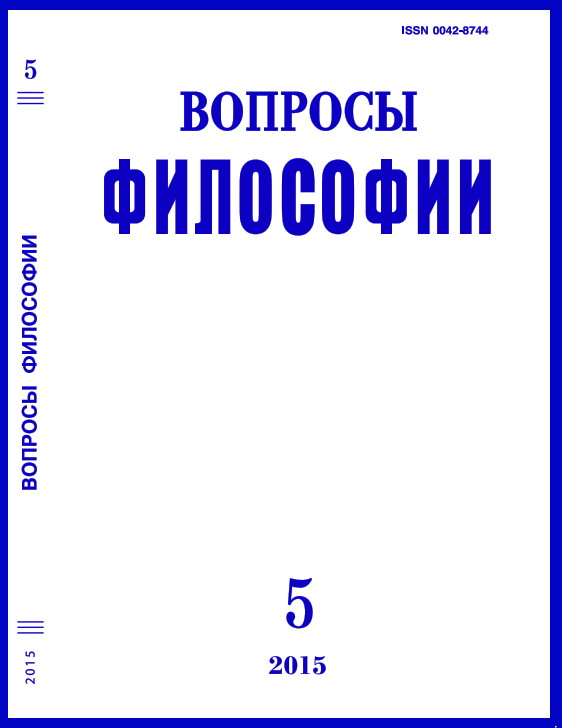J. von Uexküll’s Concept of Umwelt and its Significance for the Modern Epistemology
Abstract
The concept of “Umwelt” coined in science by Jakob von Uexküll is under consideration in the article. Umwelt is specific environment to which every biological individual is adapted and which is constructed by it. Being one of pillars of biosemiotics, this notion demonstrates its methodological force for the development of the modern, non-classical epistemology. Accord- ing to von Uexküll, Umwelt is built by selection of the meaningful and of the valuable and by involving it in the world of life of an organism; environment is not simply the world of things, but the world of acts of behavior; cognition which is, as a matter of fact, identical to life, is the retrieval of meanings from the world; different living organisms live in different cognitive and living worlds. It is shown that the concept of Umwelt carries profound meanings in itself and can be considered as a prerequisite of development of a wide ecological approach and of the whole range of epistemological notions, such as the connection of cognizing organism and its environment, cognition through action, activity and embodiment of perception, construction in the process of cognition, enactivism.

